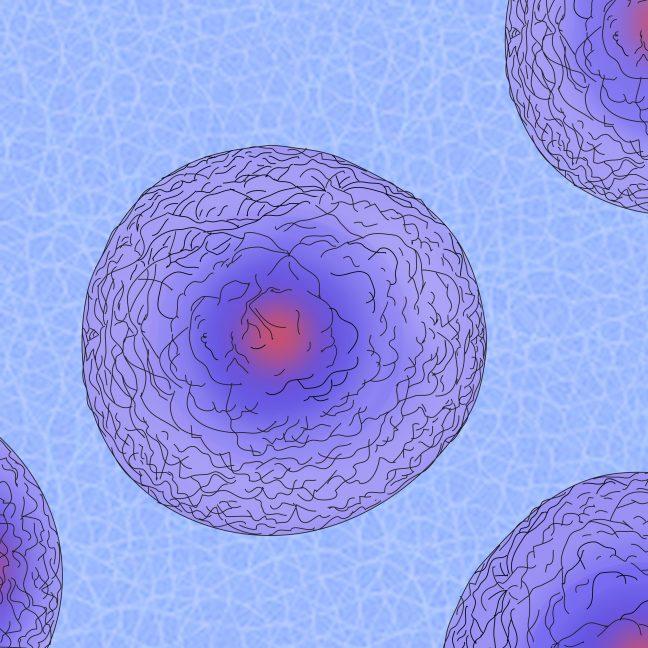A new study at the University of Wisconsin hopes to use stem cell therapy to doctor Parkinson’s disease.
The study is led by professor of neuroscience and neurology Su Chun Zhang and postdoctoral researchers Yuejun Chen, Man Xiong and Yezheng Tao.
Director of the Stem Cell and Regenerative Medicine Center Timothy Kamp said studies that have to do with degenerative diseases, such as Parkinson’s, are intimately involved with many aspects of physiology.
Stem cells, Kamp said, are cells taken from tissue or an embryo and implanted into other places in the body where the cells might not work right.
Kamp said growing new stem cells to replace ones lost or damaged by degenerative diseases might improve the symptoms associated with these diseases.
One such degenerative disease is Parkinson’s. In Parkinson’s disease, an individual loses a particular type of brain cell. According to the Mayo Clinic, common signs of Parkinson’s disease are a loss of motor activity or the ability to gesture and move about. Replacing the affected parts of the brain could potentially help restore motor activity, Kamp said.
Oftentimes, unfortunately, this can be a difficult, arduous process, Kamp said. A number of challenges come with stem cell therapy, posing risks for patients and difficulties for researchers.
Anti-animal research organization files complaint against UW’s primate research center
“With Parkinson’s disease, the real challenge is cell delivery. They’re delivering these cells to very specific areas of the brain,” Kamp said. “So you’ve really got to have the precise neurosurgery to get the cells right to where they need to be, because there is risk associated with that.”
Zhang said to test the potential efficacy of stem cells in this case, the researchers destroyed dopamine nerve cells in the mice, and then transferred human stem cells back into where the dopamine nerve cells were.
If the mice gained back their ability to move and function, the researchers knew the treatment worked, Zhang said.
“The mice show symptoms very much like Parkinson’s patients,” Zhang said. “After the mice recover from the movement deficit, we can demonstrate whether the nerve cells we transferred are safe and effective.”
Zhang also noted a number of risks associated with stem cell therapy. Understanding the more difficult issues as well as knowing how to deal with these issues from the beginning is crucial, Zhang said.
Some issues are easier to fix and repair, while others pose a more challenging threat as it pertains to neural activity, Zhang said.
“Stem cells can divide continuously, which can create problems, such as creating tumor-like cells,” Zhang said. “The second challenge is our brain is wired in a very precise manner, so if you put in nerve cells that are not required or different kinds of nerve cells, it can create problems.”
Kamp said oftentimes, when in the early stages of stem cell research development, smaller animals such as mice offer a viable option for researchers to discover the effectiveness of particular treatments.
Performing experiments on humans isn’t a sound idea when researchers aren’t yet confident in the treatment’s safety or efficacy, Kamp said.
UW research provides alternative approach to flu, COVID-19 vaccine development
“If you’re going to try and understand how to treat a particular disease such as Parkinson’s disease, you need an animal model to do some of the testing before you do it in patients,” Kamp said.
Stem cell research still has a long way to go before it is applied in widespread treatments. While there are not any major clinical products widely available today, there are some success in human clinical trials, Kamp said.
Kamp also said stem cell treatments are not always needed to treat degenerative diseases, but they may help researchers understand how tissue repairs itself.
“There’s many diseases where, as the disease progresses, you lose those functional cell types, and so those diseases may benefit from stem cells and regenerative approaches,” Kamp said. “The stem cells may teach us how to turn on regenerative pathways in the tissues themselves, so ultimately we may not need to use stem cells, but we may learn from them.”
Despite these challenges, Kamp still believes the research conducted in Zhang’s lab offers promise as it pertains to the field of stem cell treatment and regenerative medicine.
Kamp noted the extraordinary nature of the human brain.
“This work shows continued progress in treating a complicated disease with a cell-based therapy. So it’s another step forward, and I think it’s remarkable that human cells do as well as they do,” Kamp said. “The adult brain is a tough environment for the cells to track through that and know that’s the right place.”
UW Health focuses on improving diversity in COVID-19 vaccine clinical trials
Zhang remains hopeful his extensive research and experience working with stem cells will one day benefit patients.
The objective of Zhang’s work is based on the objective to develop new and different ways to treat patients, Zhang said.
“I think we are actually pretty happy that we have tested safe and effective trials in mice. We have also done work with non-human primates, and hopefully we are moving to humans,” Zhang said. “So that’s our goal; that at some point, that our work will benefit patients.”

















